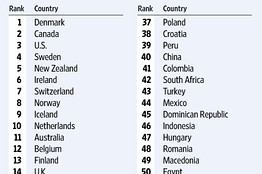In working with Zoltan Acs and his ‘new model of American Capitalism’ and Phil Auerswald on Social Entrepreneurship, I am becoming increasingly interested in the role of philanthropists in economic growth and opportunity. Philanthropy is different from charity — philanthropists provide opportunity to others, charity provides immediate needs.
I am reminded of this more and more as I dive into the history of US higher ed with such books as Randolph’s The American College and University: A History.
An editorial at the WSJ points out a Congress Member that is planning on going after foundations in order to get more ‘public’ control over their activities. Given my growing understanding of the power that philanthropy — often through foundations — continues to play in America’s political and social development. From the WSJ: Congress Targets Philanthopy…
Like divining rods, Members of Congress are always alert to fresh sources of money, which once discovered they will spend. California Democratic Congressman Xavier Becerra thinks he’s discovered a new source of political treasure: the money inside private and community foundations.
The tax exemption foundations enjoy, says Mr. Becerra, is a “$32 billion earmark.” As he explains: “I have an obligation to make sure that those $32 billion that would have gone to the federal government are used for a . . . public good.”
This sounds like political intimidation. Unless the foundations reprogram money in the direction of Mr. Becerra’s preferences, he’ll start proceedings to dismantle their tax exemption.
Mr. Becerra and his allies, however, may want to think twice about whacking foundations. A study out this month suggests that foundations spread economic benefits more broadly through society than had been previously imagined. The research was commissioned by a new organization called the Philanthropic Collaborative and was conducted by Robert Shapiro, President Clinton’s under secretary of commerce for economic affairs, and Aparna Mathur, a fellow at the American Enterprise Institute. The Washington-based group’s goal is to persuade policy makers of the benefits of philanthropic dollars flowing to communities across the country.
For the $43 billion that foundations spent on grants in 2007, they created direct economic benefits of $368 billion. Those nonprofits that consistently outperform government programs have been saving taxpayers a bundle.
I am in the midst of a steep learning curve on the role of philanthropists in society as Zoltan ramps up work on his forthcoming book and GMU moves further into the Social Entrepreneurship field with the ChangeMakersCampus effort, active social entrepreneur networks on campus, and more coursework and research.
Many believe the rise of Gates, Skoll et al. on one extreme and Kiva.org etc. on the other extreme herald a new day for philanthropy and sustainable development globally. What are your thoughts? Also, should the government be making new policy on as the players bring in their new models, methods, and ideas?


